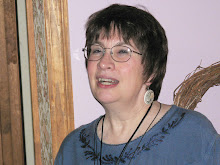Either Snelling . . . lost control of his faculties, or he made a lamentable mistake. . . Our job is not to determine who is worthy of life, but how to make the most of the life we have been given. . . . But who is to say how Snelling would have felt four months from now? The fact is, we are all terrible at imagining how we will feel in the future. . . our capacities for imagining the future are . . . horrible in moments of stress and suffering. Given these weaknesses, it seems wrong to make a decision that will foreclose future thinking. It’s better to respect the future, to remain humbly open to your own unfolding. . . .If you look at life through the calculus of autonomy, then maybe Snelling made the right call. . . . But if you look at a life as one element within a mysterious flow, . . . Charles and Adrienne Snelling still had a few ripples to create.In present-day U.S. realities, there is no return from Alzheimer's; after age 80 the outlook for an autonomous, productive, and meaningful life in the absence of some form of dementia is bleak at best, even for those with the means to pay for long-term, humane, enlightened, assistance. To suggest that anyone in the circumstances faced by the Snellings had “a few ripples to create” in the “mysterious flow” of life, is naive at best, cruel at worst.
Brooks declines to present the religious arguments against murder and suicide, “many of which are based on the supposition that a life is a gift from God.” But larger theological minds than Mr. Brooks’ have gone far beyond such simplistic pietisms and wrestled with the “courage to be” – to live fully and completely in the face of the knowledge that one day we will cease to exist. Mr. Snelling stands accused by Brooks of either a profound and callous self-centeredness, or romantic delusion. But neither may have been the case. Instead, in the face of the failure of both society and the religions that claim to nurture and guide it, Mr. Snelling looked into the possibility of non-existence and chose it.
That choice shows a trust in the nature of life and the universe that is close to the trust that Jesus taught and embodied. Progressive, liberal religious people – Christians particularly – should look to Jesus’ relationship to God beginning with Matthew 6:25-34. Jesus says, “don’t fret about your life . . . there’s more to living than food and clothing . . . Take a look at the birds of the sky . . . the wild lilies . . . the grass in the field, which is here today and is thrown into an oven tomorrow.” Go on from there to John 14:1-4, followed by Paul’s first letter to the Corinthians, 15:51-52. Read these passages in the context of today’s cosmology – what we now know about the nature of the Universe, including the laws of physics, not the 1st century cosmology of a triple-decker universe with God above, earth in the middle, and hell below that conventional religion insists upon to its continued irrelevance.
Jesus taught a seamless relationship among the spirit of life, the natural world, and humanity, and he trusted that relationship to the point of his own unjust death at the hands of Roman occupiers. Paul writes, in the new translation by the Westar institute scholars:
I am going to tell you a wondrous secret: We are not all going to die, rather we are all going to be transformed, in an instant, in the blink of an eye at the sound of the last trumpet-signal. The trumpet will sound and the dead will be raised incorruptible and we [too] will be transformed. Because this perishable man must be clothed with the imperishable, and this mortal man must be clothed with immortality. And when the perishable is clothed with the imperishable and the mortal is clothed with immortality, then the saying that is written will come true: Death has been engulfed by victory. Where, O Death has your victory gone? What’s happened, O Death, to your fatal sting?21st century cosmology is clear: neither matter nor energy can be created or destroyed, but only transformed. We should have the same confidence in God that Jesus did: the same confidence in justice-compassion, in the spirit of life, and the nature of the universe itself.
In this Holy Week that celebrates the liberation of Passover and the incarnate promise of Easter, instead of concluding that Mr. Snelling “either lost control of his faculties, or made a lamentable mistake,” progressive spiritual leaders should grant him the courage to look into nothingness and encounter life itself.

